16:30h
Room 1
Stefano Micali – Husserl-Archives – KU Leuven
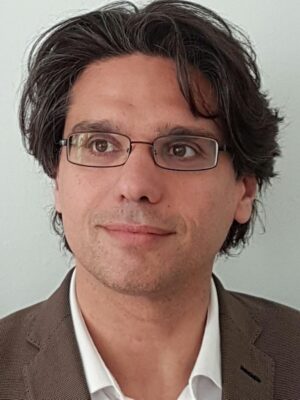
Biography:
Stefano Micali is Professor at the Institute of Philosophy and the Chair of the Husserl-Archives: Centre for Phenomenology and Continental Philosophy at the KU Leuven. He is the author of Phenomenology of Anxiety (2022), Tra l’altro e se stessi (2020), Überschüsse der Erfahrung (2008), and Esperienze temporali (2008). He has written over 70 articles in different languages (English, German, Italian, French, and Dutch) in various areas of research ranging from psychopathology to religion, from political philosophy to aesthetics. He has co-edited several volumes focusing on the relation between psychopathology and philosophy such as Bilderfahrung und Psychopathologie (Fink Verlag, 2014) and Das überforderte Subjekt (Suhrkamp, 2018). He is also co-editor of the DGAP (German Society for a Phenomenological Anthropology – Alber Verlag) series and the Phaenomenologica series (Springer).
Change Anxiety
When is anxiety justified? When does anxiety cease to function as an effective and reasonable signal preventing imminent threats, and when does it become an invasive projection of our own ghosts? In my talk, I aim to address these questions by discussing the ambiguities of this phenomenon. Anxiety, in fact, can both protect us from danger and be a danger in itself.
The paper is divided into two sections.
First, I will develop a phenomenological analysis of anxiety, focusing particularly on the altered relationship between perception and imagination. Second, I will address a specific form of anxiety that is particularly dominant today. Our post-disciplinary society is charachterized by the virtualization of intersubjective bonds through social media and the imperative of optimization and acceleration. In such a volatile environment, one of the major anxieties is related to the feeling of “being left behind.”
Room 2
Stavros Stavrides – The National Technical University of Athens
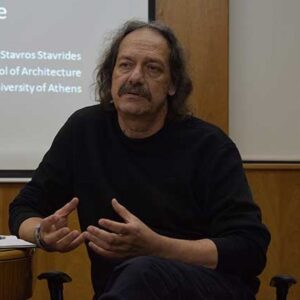
Biography:
Stavros Stavrides, architect and activist, is Professor at the School of Architecture, National Technical University of Athens, Greece, where he teaches graduate courses on housing design (social housing included) and urban design, as well as a postgraduate course on the meaning of metropolitan experience.
He is currently the head of NTUA Lab for the Architectural Design and Communication.
He has done extensive research fieldwork in Brazil, Uruguay, Argentina, Colombia, Venezuela and Mexico focused on housing-as-commons and on urban struggles for self-management.
His recent publications include The Politics of Urban Potentiality (2024), Housing as Commons (co-edited with Penny Travlou, London 2023), Common Spaces of Urban Emancipation (Manchester 2019), Common Space. The City as Commons, (London 2016, Istanbul 2016, Athens 2019, Lisbon 2021, Milano 2022, Bucharest 2024, forthcoming in Belgrade and Seoul), Towards the City of Thresholds (Trento, 2010, Madrid 2016, Istanbul 2016, N. York 2019), Suspended Spaces of Alterity (Athens, 2010) and From the City-as-Screen to the City-as-Stage (Athens, 2002 National Book Award) as well as numerous articles on spatial theory and the urban commoning culture.
He has lectured in European and North and South American Universities on urban struggles and practices of urban commoning.
Personal homepage: https://stavrosstavrides.com/
Commoning Power: Towards emancipatory social changes
Social change needs to be related to new forms of social organization. This presentation will suggest that a possible way to pursue social change with the aim of establishing a society of collective emancipation is by shaping egalitarian and inclusive practices of commoning.
Related to diverse traditions of sharing that under different names indicate a world which explicitly differs from capitalist ethos, commoning may encompass the emancipatory potentialities of egalitarian and cooperative development of the common. Predominant in such a process is the sharing of power. Commoning power means eliminating the possibilities of power accumulation.
Potentialities for such a form of social change do not simply belong to the concrete reality of a certain historical period and to a certain social setting. Potentialities are being performed. They come into being while being performed. This means that they are neither creations of the mind of different actors (or thinkers) nor objectively determinable by distanced researchers. In order to explore such potentialities it is important to learn from the existing practices of movements that try to establish different, albeit always under threat, forms of social organization based on commoning. Drawing from examples in Latin America and Europe, this presentation will try to show that potentialities for a different future unfold in the present when new ways of living and dreaming together are being developed by people who try to take their lives in their hands.
11:00h
Room 1
Jörg Matthes – University of Vienna
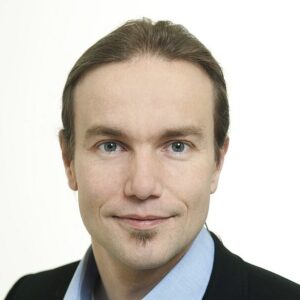
Copyright: Barbara Mair
Biography:
Jörg Matthes (PhD, University of Zurich) is Professor of Communication Science at the Department of Communication, University of Vienna, Austria, where he directs the Advertising and Media Psychology Research Group (AdMe). His research focuses on digital media effects, advertising and consumer research, sustainability communication, children & media, terrorism and populism as well as empirical methods. He has extensively published on these topics, with more than 200 journal articles. In 2014, he received the Young Scholar Award by the International Communication Association honoring the most outstanding research career worldwide seven years past the PhD. Two years later, he received AEJMC’s Hillier Krieghbaum Under 40 Award which honors scholars “under 40 years of age who have shown outstanding achievement and effort in all three AEJMC areas: teaching, research and public service”. In 2019, he was honored with the UNIVIE Teaching Award and in 2021, he was elected as a Fellow of the International Communication Association. He was recipient of an Advanced Grant (2.5 Million Euros) by the European Research Council (ERC) in 2022. Currently, he is Editor of Communication Theory.
Digital Media as a Driver of Change: The Illusion to be Informed
For many individuals, digital media have become an important and indispensable source of political information. In light of that, scholars and analysts have expressed great hopes that digital media can pave the way for a better and truly participatory democracy. The idea is that digital media can mobilize those who used to remain silent, leading to learning, understanding, and ultimately, democratic change. This talk revisits these hopes. Based on research on the role of digital media for learning and political engagement, I demonstrate that digital media use is, in fact, a strong driver of change. However, digital media does not necessarily foster political understanding. Instead, it creates an illusion to be subjectively informed, leading to blind rather than informed participation and change.
Room 2
Rachel Armstrong – KU Leuven

Biography:
Rachel Armstrong’s pioneering work within design-led research brings the sciences of living systems into proximity with next-generation sustainable materials and services for the practice of the built environment. The theoretical and material synthesis of this research is regenerative architecture, which combines livingmaterials (i.e., those that possess some, or all, the properties of living things like growth, self-movement, metabolism etc.) with bioreceptive interfaces and next-generation sustainable architectural approaches that seek beneficial impacts on the environment which exceed Net Zero impact targets. Her practice is fundamentally interdisciplinary and collaborative working at the interface between science, design, and society to design applications for the first generation of regenerative architecture.
Dynamic Matter: Negotiating Change via Entropy and Synthesis through Metabolism
This essay discusses the dynamic interplay between matter, entropy, and life, exploring how microbial communities and collectives of lively matter resist thermodynamic decay to promote creative material transformations. Defining change as the devitalising imperative implicit in the second law of thermodynamics, it proposes that lively matter represents a creative counterforce that resists increasing entropy, or disorder, and drives material systems towards synthesis and chemical diversity.Challenging anthropocentric notions that privilege traditional biological entities, discussed as bios, that are deemed capable of a certain quality of life, over broader and more inclusive understanding of life considered as zoe, or bare life, the latter’s ongoing contributions to the living world through soil, mineral deposits, and plastic microparticles are acknowledged.
Exploring how such an alternative material mythos of matter might be realised, a series of architectural prototypes are discussed that demonstrate the capacity of living systems to generate an alternative approach to human development. Future Venice explores applications of dynamic droplets to build an artificial reef around the city’s foundations, while a series of linked research projects: Living Architecture, 999 years 13 sqm (the future belongs to ghosts), ALICE and Microbial Hydroponics integrate microbial systems into built environments to promote sustainability and resilience. Envisioning a future where human habitats coexist with dynamic microbial communities, and ‘living’ technologies, a platform for human development emerges that engages creative change through a deeper understanding of the intricate relationship between matter, life, and entropy to ultmately promote biodiversity, enhance human well being and bolster environmental health.
15:00h
Room 1
Regina Kreide – University of Giessen
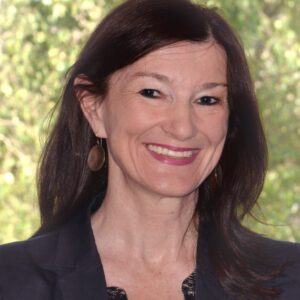
Biography:
Regina Kreide is a professor of Political and Social Theory and the History of Ideas at the Justus Liebig University in Giessen, Germany. She studied Sociology, Political Science, and Philosophy at the University of Cologne, Goethe University in Frankfurt and at Columbia University in New York. She taught as a Visiting Professor at the New School for Social Research in New York (2009), the Universidad de Antioquia Medellin, and at the UAM Iztapalapa, Mexico City, Mexico, at the University of Washington Seattle, and was fellow at Auckland University this year. She is one of the directors and a co-speaker of the Research Center “Dynamics of Security” at Giessen and Marburg university.
She has published widely in international journals: Global (in)justice and the human right to housing. A practice-based-approach, in: Critical Review of International Scoial and Political Philosophy, Dec 2020; The Housing Question Revisited, in: Terrell Carver & Smail Rapic (eds.): Friedrich Engels for the 21st Century – Perspectives and Problems, Palgrave 2022; Social critique and transformation: Revising Habermas’s colonisation thesis, in: European Journal of Social Theory, 2022; and also the Habermas-Handbook, together with H. Brunkhorst, C.Lafont, Columbia UP 2017; The Securitization of the Roma in Europe, (with Huub Van Baar and Ana Ivasiuc), 2018, and The Repressed Democracy 2016 (in German).
Who owns the city? Toward a notion of collective property
Social change takes place continuously. Only rarely do changes lead to social conditions that are not exploitative, oppressive and alienating. One way to reveal how unfreedom is created is to expose the ideological promise of neoliberal societies and show what remains of it for the many in the face of countless contradictions. The housing question is a pressing issue in most cities globally, producing visible glaring injustices. Friedrich Engels already described the displacement of workers and the poor in favor of housing speculation and a new, controllable urban development. David Harvey speaks of the “second form of exploitation” when profit is made not only through production, but additionally through the marketing of housing. And currently, the global housing market has taken on a new dimension, as it is no longer just about gentrification and displacement on the legal basis of private property, but speculation on the likelihood of housing appreciation through financialization.These developments express a tense relationship between property and freedom. While property is seen as a guarantor of individual freedom and control within the framework of liberal theory, in view of the social situation one cannot help but see that, in the words of Horkheimer and Adorno, the situation must be described differently. The idea of individual property is, it is argued, dialectically reversed and creates a new lack of freedom; it leads to the restriction of collective well-being, social exclusion, undesirable immobility, excessive debt, and social isolation. While an individual concept of ownership regards housing as a commodity that can be traded like any other, a collective concept of ownership also allows for other, internally democratic social relationships and makes it possible to understand housing, and land in particular, as a communal, public good that permits different forms of housing and living in order to counteract alienation in housing.
Room 2
Emmanuel Picavet – Paris-1 Panthéon-Sorbonne University
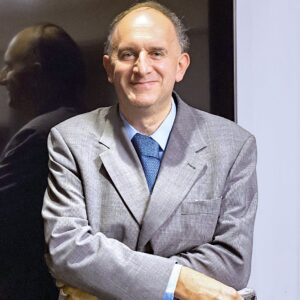
Copyright: Jean Paul Margnac
Biography:
Emmanuel Picavet is professor of Philosophy (Applied ethics) at Paris 1 Panthéon-Sorbonne University. He is the author of Approches du concret (Ellipses, 1995), Choix rationnel et vie publique (PUF, 1996), La Revendication des droits (Classiques Garnier, 2011, 2021). He is co-editor of the Revue de philosophie économique / Review of Economic Philosophy (Vrin). E. Picavet is a member of the Bureau of the Société Française de Philosophie, in charge of the international relations, and France’s delegate to the Bureau of the Fédération Internationale des Sociétés de Philosophie (FISP). He co-chairs the CSR group in his research team (ISJPS, UMR 8103) and he is a member of the national CSR platform.
Shared and plural interpretations in democratic deliberation.
Shared interpretations can be viewed as part of the “commons” of democratic deliberation. However, political and administrative organization relies on a plurality of implementation processes through which various interpretations of the relevant normative systems find an expression. A problem occurs when rule-implementation tasks are parcelled out to a plurality of agents who operate in various cognitive or perceptual contexts, when this diversity results in inconsistent ways to implement rules. Coordination problems must be faced, when the contrasted implementation of rules reveals conflicting context-based interpretations.
However, isn’t it the case that decentralizing the normative implementation process and allowing it to be markedly « contextual » is a means to avoid open disagreement (and sometimes associated costs, such as the inconvenient of conflicts about prerogatives)? Taking this side of things seriously, we should be committed to characterizing the kind of hermeneutic plurality which can be allowed in the case of enforcible normative systems. A general framework will be discussed and it will be argued that reliance on contextual implementation makes it necessary to face problems which have to do with the conjunction of objective and subjective normative assessments of states of affairs.
10:30
Room 1
Shijun Tong – Shanghai New York University
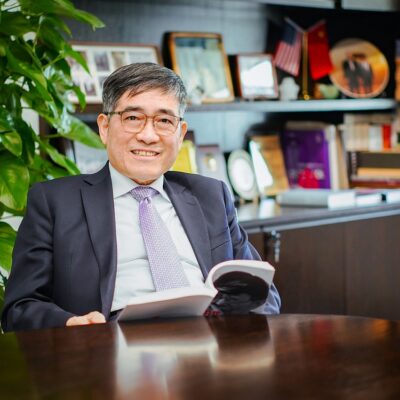
Biography:
Tong Shijun was born in Shanghai in September 1958, and became Chancellor of Shanghai New York University (NYU Shanghai) in June 2020 after his decades-long (after 1984) academic and administrative services at East China Normal University (ECNU), where he got his undergraduate and MA education from 1978 to 1984; before that he spent three years as a state-run farm worker on Chongming Island from 1975 to 1978.
As an administrator, Tong worked as Chair of ECNU’s Department of Philosophy from 1995-1997, as Deputy Dean of Shanghai Academy of Social Sciences (SASS) from 2004-2011, as Director of Philosophical Institute of SASS from 2009-2011, and as ECNU’s University Council Chairman from 2011-2019.
As a philosopher, Tong received his Doctoral Degree in Norway in June, 1994, and published more than 10 books and over 100 papers, mostly in Chinese and few in English, on topics covering epistemology, ethics, political philosophy, and comparative philosophy. He also translated several books from English and German into Chinese, including Jürgen Habermas’ Fakzitität und Geltung. In 1998, he spent six months as a guest professor at University of Marburg in Germany and from 2000-2001 he worked as a visiting research Fulbright Scholar at Columbia University in the USA. Since 2010 Tong has been a Foreign Member of the Norwegian Academy of Science and Letters (Det Norske Videnskaps-Akademi).
While working both as a professor of philosophy of ECNU (since 1994) and the chancellor of NYU Shanghai (since 2020), Tong is currently also the Chairman of the Shanghai Society for Comparative Studies between Chinese and Western Cultures and Philosophies.
Kant’s three arguments for human progress
Kant may be seen to have provided three arguments for his idea of historical progress towards the perpetual peace and the cosmopolitan civil society: the argument of “not being impossible”, the argument of “a plan of the nature”, and the argument of “man’s moral duty” understood as “the fact of reason”. Compared with the first two arguments, which are either too weak or too strong, the third one, or the argument of “the fact of reason”, could be made better sense in our times if “the fact of reason” is reinterpreted as “the fact of learning” in such a way that both the naturalistic fallacy (reducing what is prescriptive to what is descriptive)) and the decisionistic fallacy (reducing a normative argument to a mere decision) can be overcome.
Room 3
Sanja Bojanić – University of Rijeka
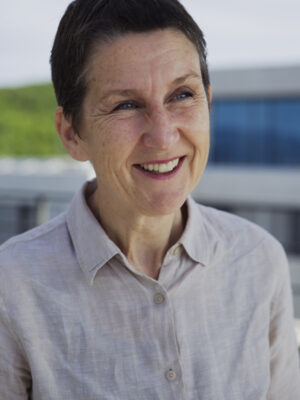
Biography:
Prof. Sanja Bojanić, PhD, is a researcher immersed in the philosophy of culture with an overarching commitment to comprehend contemporary forms of gender, racial and class practices, which underpin social and affective inequalities specifically increased in the current societal and political contexts. She expanded and tailored her interests as a graduate student at the University of Paris 8 in Hypermedia Studies and obtained her PhD at Centre d’Etudes féminines et d’etude de genre. This process ultimately led to interdisciplinary research based on experimental artistic practices, queer studies, and particularities of Affect Theory. Her research and scientific work are fostered through various projects. As author and editor of several books and manuals, she has published over fifty peer-reviewed papers on topics related to her expertise.
Why is art transformative?
„Why all these signs around us that make me doubt language
and submerge me in meanings…“ Jean-Luc Godard
Two or three things that I know about her (1967)
In November 1959, Mark Rothko presented his recipe for a work of art at the Pratt Institute in New York: its ingredients, the way it was created – in a word – he tried to determine its formula.
My try will be to show how artistic work is created by transforming subjective experience into an artistic expression. How this transposition creates meaning and as transformed moves because it is movement; as a gesture it places thought because thought is a matter of movement. To be moved by this movement of meaning is to be moved by the visual content. So, producing meaning is to connect with it and keep it moving. Creativity and the question of what it consists of and what its formula is, even more than creating a work of art, guarantee meaning that can sustain life. It also defends its lack of concrete purpose.
12:30
Room 1
Laurent Jeanpierre – University of Paris 1 Panthéon-Sorbonne
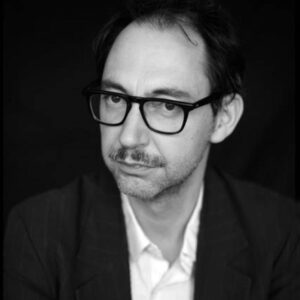
Copyright: Emmanuelle Marchadour
Biography:
Laurent Jeanpierre is a sociologist and professor of political science at the Université Paris 1 Panthéon-Sorbonne. His research has focused on transnational politics, the politics of ideas and knowledge in public space and government, protest politics and revolutionary politics. He has worked on the conjunctures of the end of the Second World War, the 1968s in France, the Arab revolts of 2011 and the Yellow Vests social movement in France in 2018-2019. Latest publications: Histoire globale des révolutions, Paris, La Découverte, 2023 (with Ludivine Bantigny, Quentin Deluermoz, Boris Gobille, Eugenia Palieraki); What Makes An Assembly? Stories, Experiments and Inquiries, Brussels and London, Fondation Evens & Sternberg Press, 2022, edited with Anne Davidian; La perspective du possible, Paris, La Découverte, 2022 (with Haud Guéguen)
Room 3
Natalie Depraz – University of Paris X Nanterre
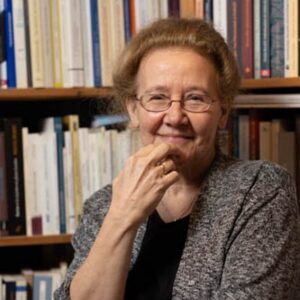
Copyright: Hermance Triay
Biography:
Natalie Depraz is Professor of contemporary philosophy at the Université Paris Nanterre (IRePh) and Membre Universitaire at the Husserl Archives Ens Paris. Her latest book: La surprise. Crise dans la pensée (Paris, éditions du Seuil, coll. L’ordre philosophique, avril 2024)
The transformative virtue of surprise
In this contribution, I would like to put the phenomenon of surprise at the service of a renewed understanding of political transformations. A quick look at the history of philosophy reveals how little surprise has been broached by philosophers, unlike astonishment, wonder, event or admiration. A common understanding tends to reduce surprise to a mere meaningless shock which leaves the subject passively subjected to it and under its influence. In short, surprise would be only seen under the negative light of a subject being captured by an object, a person or a situation which imposes itself upon her. In what follows, I will show how the phenomenon of surprise is also the seed of a fruitful opening which may generate creative possibilities of meaning, and may be cultivated as an ability of welcoming new events. The question being: how is a dynamic model of surprise understood as a creative opening of meaningful realities able to fertilize and renew our understanding of political transformations?